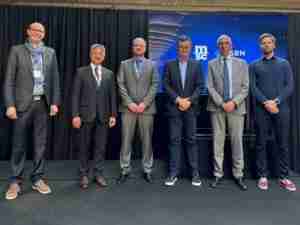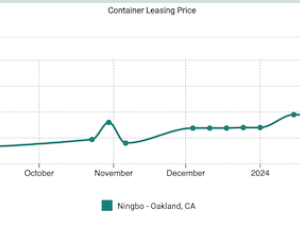Most shipping companies have suffered from distressed freight rates in the past several years as demand to transport commodities has lagged supply of vessels. This has been compounded by a slowdown in the global economy that has made access to funds difficult.
The weak rate environment is expected to continue through 2012 and beyond. While 2013 could see some recovery in rates, the prospect of continued capacity expansion in China presents a longer-term challenge, said Mark Friedman, a senior managing director at investment bank Evercore Partners Inc.
"There's a lot more shipyard capacity than there's ever been in the industry before, with a lot of the incremental capacity being in China," Friedman said. "And that capacity just doesn't go away. The increased supply of ships could pressure rates over the long term."
"There ought to be more consolidation as some companies do not have adequate capital market access or liquidity."
Friedman and George Ackert, who together run Evercore's transportation and infrastructure advisory practice, say that shipping assets have become an attractive investment for financial firms and private equity investors looking to take advantage of the overcapacity-induced downturn.
In a recent industry transaction, investors including private equity firm First Reserve, billionaire investor Wilbur Ross' investment shop WL Ross & Co and sovereign wealth fund China Investment Corp announced a $1 billion equity investment in U.S. shipping company Diamond S Shipping, which will use the funds to acquire 30 tankers.
In March, private equity firm Carlyle Group formed a joint venture with maritime investment firm Tiger Group and other investors to buy more than $5 billion worth of containers, tanker vessels and other shipping assets.
Evercore also worked on several shipping deals over the past two years, including advising Capital Product Partners on its acquisition of Crude Carriers Corp and representing Overseas Shipholding Group Inc in its purchase of OSG America L.P.
Ackert, who joined Evercore in early 2009 to build transportation practice for Evercore -- the first for an boutique advisory -- said shipping and transportation leasing have been two of the most active sectors in transportation in terms of deal activity over the past year.
Fickle Financing
Deals in recent months include General Electric Co's $1 billion sale of its container leasing business to China's HNA Group and Bravia Capital, and the sale of American International Group's rail car services and leasing unit to Perella Weinberg Partners.
While the recent volatility in financing markets means deals have become more expensive and harder to complete for some buyout firms, private equity investors continue to actively scour transportation leasing for deals, Ackert said.
Buyout firms typically need leveraged loans and high-yield bonds -- the riskier form of lending that carries some of the highest interest rates and often is among the first financing to be withdrawn when credit tightens.
"Private equity always needs to put money to work, and their deal appetite remains the same. But as financing gets worse, deals are harder and taking longer," he said.
Ackert has been integral in some of the industry's transformational deals during his investment banking career at Evercore and previously at Bank of AmericaMerrill Lynch, where he served as the global head of transportation and infrastructure.
Along with Evercore Founder and Chairman Roger Altman, Ackert advised railroad company Burlington Northern Santa Fe in its $34 billion sale to Berkshire Hathaway in late 2009, which stands as the largest transportation M&A deal ever. Recently, Ackert advised AMR Corp , the parent of American Airlines, on its planned spin-off of regional unit America






